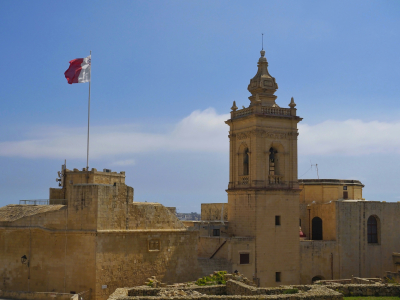The newly created Anti-Money Laundering Authority (AMLA) is looking for a Chair. It’s a big ask. Will this new institution be led by a true champion committed to stopping dirty money from finding its way into the EU single market, or by someone more concerned about maintaining the status quo and protecting national economic interests? The procedure for hiring the Chair for this new EU agency has been recently launched: the candidates will face a hearing in the European Parliament (EP), and then the European Parliament and the Council will decide on the appointee.
The recently adopted anti-money laundering (AML) package is a good starting point to improve the integrity of the EU’s financial system and address the shortcomings observed in recent corruption and money laundering scandals involving financial institutions in EU member states. A truly independent authority will be a key piece in the new framework. It should not be held hostage by Member States or business interests. To achieve its goals, the Chair (elected for four years) should ensure the agency works to protect the EU from dirty money regardless of the economic and political impact measures might have on specific member states and or financial and non-financial enablers.
The new AMLA will combine different tasks. From 2028 onwards, it will directly supervise 40 of the riskiest financial and credit institutions. It will have very important roles in coordinating and harmonising the work of national supervisors, including by developing regulatory standards and guidelines. The new Authority will even have the power to assume the supervision of a financial or credit institution from a national supervisor in case of serious, repeated or systemic breaches, should the national supervisor fail to address the shortcomings. However, without strong AMLA leadership that is free from political influence, this last line of defence is doomed to forever remain an empty legal option, thus not achieving the desired deterrence effect.
The AMLA will also function as a central institution and information hub to aid the work of national Financial Intelligence Units (FIU). Criminals do not stop at borders: financial crime (especially large-scale) is cross-border by nature. It is time to improve joint analyses and information sharing.
The main decision-making body will be the General Board, comprising the Chair and 27 representatives of the Member States. Nevertheless, the Executive Board (the Chair and five full-time members) will have strong powers. This is a very welcome development, because it gives the institution independence from business or Member State interests.
This is not a theoretical concern. Following the Danske Bank scandal, when around €200 billion was laundered through the bank’s Estonian branch, the European Banking Authority (EBA) launched an investigation as to whether EU law had been breached. However, the formal investigation was shut down by the EBA’s Board of Supervisors, which consists of national representatives. The AMLA must avoid placing national interests above its own.
The new Chair will need to be clean of all doubts regarding any potential conflicts of interest. Past employment or existing business links that candidates have undertaken before applying for the position may also raise concerns. Neither the Regulation nor the vacancy address this potential issue, apart from requiring candidates to make a declaration of interests. While this is a step in the right direction, we should also ensure that a proper analysis of potential conflicts of interest is undertaken for all candidates and that, if a conflict has been identified, appropriate mitigating measures are adopted.
Candidates with previous potentially problematic business history are said to be revolving ‘in’ (through a revolving door). But what about employees revolving ‘out’, as they leave the AMLA? Here, the Regulation provides for an 18-month ‘cooling-off’ period. After ceasing to hold office, the former Chair shall be prohibited from engaging in a gainful occupational activity in the sector they supervised. EU institutions and bodies do not share a common revolving door policy. The 18-month legal requirement is reasonable, but the “gainful activity” qualification might provide a loophole. It means that the exiting Chair could, for example, join the board of an organisation without being remunerated.
The powers and possibilities of the new authority look great on paper. But what this position really needs is a true leader. This means someone who can help financial institutions as their ally, but who is also ready to use the “sticks” laid down in the regulation, including high financial penalties. There will be pressure on the AMLA to keep fines low in an environment where penalties typically amount to rounding errors in the annual budgets of big financial institutions. We should also expect pushback from Member States when conflict arises. This is why we hope the EU institutions will elect a competent and strong Chair, who will never give in to interests that undermine the AMLA’s mandate.
In the next few months, several top jobs are being reassigned across the EU, not least the Commission President and all Commissioner portfolios. The Chair of the AMLA needs special expertise and strong leadership. Laura Condruța-Kövesi as the European Chief Prosecutor has, for example, demonstrated independence beyond any doubt and has been able to make a real difference. We hope that the decision for such a position will be similarly based on merit and will not form part of backroom deals at the expense of professionalism.



